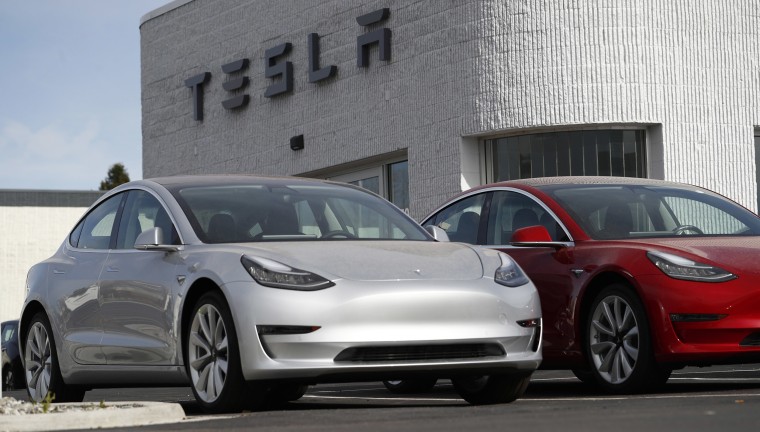Tesla rose in prominence on a promise to shake up the automotive and clean-energy industries, and it will deliver a similarly outsize jolt to the S&P 500 on Monday when it begins trading on the benchmark index.
It is far and away the largest new entrant to the index by market cap, which at the end of trading Friday was $658.79 billion. The stock closed at $695, but fell in pre-market trading Monday to $665, an over 4 percent drop.
By all accounts, Tesla’s stock has been on a meteoric rise, skyrocketing roughly 700 percent year-to-date — raising the stakes for co-founder and CEO Elon Musk (who owns roughly one-fifth of Tesla’s shares) as well as the millions of Americans who will now hold the company’s stock in their retirement portfolios.
Passive investing and the popularity of funds that incorporate all the components of major market indices have grown in recent years, so the news that Tesla would join the S&P propelled its stock even higher as traders bet on heavy demand from institutional investors.
Market pros say absorbing such a large company into a major index could make markets — not to mention Tesla itself — look choppy in the short term.
"It’s never been done before for a company of this size, which makes the uncertainty higher,” said David Yepez, portfolio manager at Exencial Wealth Advisors, who predicted that Tesla’s recent share price gains could be followed by a 15 to 20 percent drop. “We’re seeing this rally, but we might see a bit of a pullback,” he said.
Institutional investors will have to buy some $80 billion worth of Tesla stock to rebalance their index funds, analysts estimate. “We’re experiencing selling pressure in the other 499 names, a lot of buying in Tesla,” said Garrett Nelson, senior research analyst at CFRA. “It’s setting the stage for some historically extreme volatility."
Like the tech-heavy NASDAQ, the S&P is weighted by market cap, which means the performance of its largest component companies can have a disproportionately large impact on the index as a whole. Analysts point to these mechanics as a primary explanation for the S&P’s buoyant performance during a year when millions of American households and small businesses are facing profound economic hardship.
In July, Tesla announced a profit for the fourth consecutive quarter, which was seen by analysts as the last major box the company needed to check for S&P 500 eligibility. (Its stock previously traded on the NASDAQ since going public a decade ago.) Analysts say Tesla’s five-for-one stock split this year was another likely catalyst propelling its share price higher by stoking retail investor demand.
Some analysts see Tesla’s inclusion in the S&P 500 as a bellwether, a turn toward a future mobilized by clean energy-fueled electric and autonomous vehicles.
“What we think is at stake for the transportation industry, in general, is increased clean fuel and diverse fuel,” said Colin Rusch, a managing director and senior equity analyst at Oppenheimer.
Joe Biden’s defeat of President Donald Trump is also good news for Tesla in that it raises the prospect of a more aggressive push into electric and hybrid vehicle adoption.
“There's no question the election was a good thing for the electric vehicle market,” Nelson said. “The level of subsidization of the electric vehicle industry is going to be increased dramatically under Biden."
Nelson added that he expects to see incentives for alternatives to gasoline-powered vehicles and government investment in electric-vehicle infrastructure even if a pair of runoff elections in Georgia next month yield a divided Congress.
But some analysts see echoes of dot-com-bubble exuberance in Tesla’s stratospheric stock valuation. “A lot of the upside has been due to expectations —not fundamentals,” said Gordon Johnson, founder and CEO of GLJ Research
Tesla’s inclusion in a benchmark index, plus increased ownership stakes by large institutional investors, will open up the company — and its notoriously mercurial CEO — to more rigorous examination of its operations.
“When you get included into a big index like the S&P, scrutiny increases. People ask, ‘What do I own?’” Johnson said. “People are going to look beyond Elon Musk’s claims. … You’re going to have to look to the fundamentals of this business, and I think that’s where Tesla could have some problems.”
